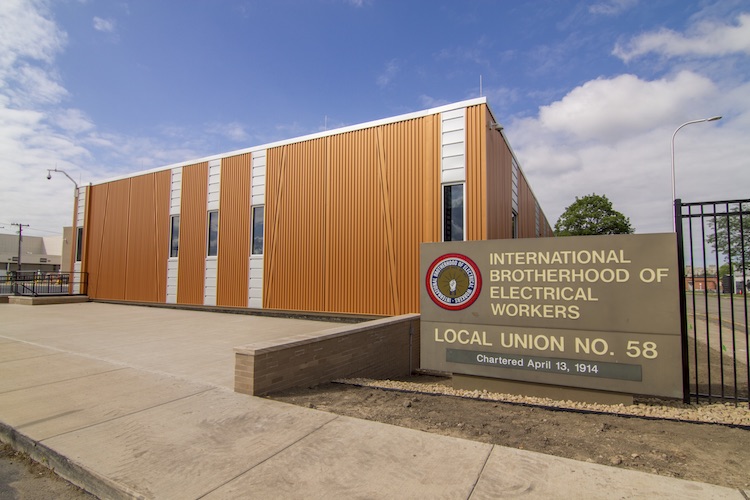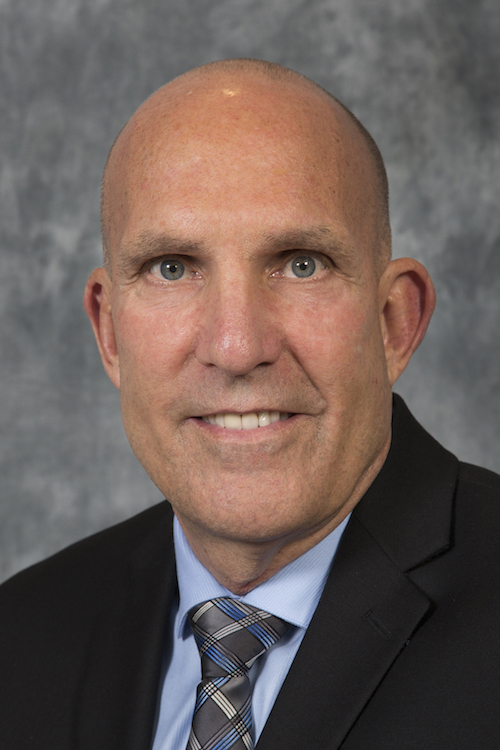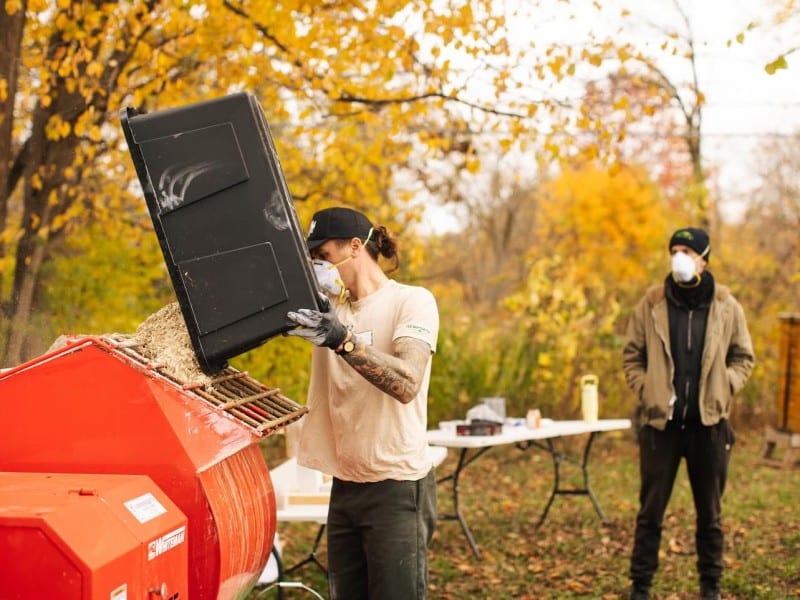IBEW Local 58 is making zero net energy happen at its Detroit headquarters
When the International Brotherhood of Electrical Workers decided to modernize its Corktown Detroit union hall four years ago, it pulled out all the stops to transform it into the biggest Zero Net Energy building in the state.

When Local 58 of the International Brotherhood of Electrical Workers (IBEW) decided to modernize its Corktown Detroit union hall four years ago, it pulled out all the stops to transform it into a Zero Net Energy (ZNE) facility. That’s a term used to describe buildings where the sum total of energy used in a year is approximately equal to the amount of renewable energy produced on-site during the same time.
IBEW Local 58 — which represents more than 4,700 journeymen electricians in Southeast Michigan — now operates the largest ZNE facility in the state. In fact, the union local even changed the name of their 33,000-square-foot building to reflect this. Its headquarters is now known as Zero Net Energy Center.
Originally constructed in 1964, the retrofitted union hall features a 600-solar panel array and solar DC-to-AC power inverters, geothermal grid, environmentally-friendly heating and cooling system, more than 500 LED lights, energy efficient windows and doors, synthetic rubber roofing system, and structurally insulated panel and Vaproshield water resistance barrier systems for walls. There’s also a virtual energy monitoring system that keeps lights off when people aren’t around.
“We’ve paved the way by being the first commercial ZNE building of its kind in Michigan,” says Onurkan Karabulut, a Local 58 journeyman inside wireman who’s been working the trade for half a decade.
Since the renovation, energy use has plummeted 76 percent, and the union expects its annual electric bill to drop by nearly $57,000.
The dramatic transformation of the union hall has not gone unnoticed. On Sept. 5 this year, Gov. Rick Snyder recognized IBEW Local 58’s work on the building with a Governor’s Energy Excellence Award, given to them during a ceremony at Goei Center in Grand Rapids.

“Let’s just say we may not always be on the same side as the sitting governor, but it felt great to win that award,” says Jim Wenson, assistant business manager with IBEW Local 58.
Wenson, the project manager for ZNE Center, has been with the effort since it kicked off in 2014. Originally, the local had just planned to replace an old boiler furnace, but Wenson’s boss at the time, Mike Richard, had just returned from a conference in San Mateo, California, where he saw a Zero Net Energy facility and was eager to make it happen back in Detroit. So they brought aboard Green Team Coalition, an energy consulting and engineering firm based in Sterling Heights, to do an energy audit.
Then, in September of 2016, things really got rolling.
Local 58 spent several million dollars over 10 months doing an extensive rebuild of their headquarters. During that time, the IBEW staff was moved to temporary trailers in the parking lot.
“We used to have a glass wall that ran along the whole street of Porter,” says Wenson. “We now have six inches of insulation with new energy efficient windows.”
Beyond that, Local 58 also bored 39 wells — each a minimum of 340-feet-deep — on their property and connected it to a heating and cooling system that runs throughout the building. A 20 percent propylene glycol solution runs through pipes deep in the ground and returns heated to warm the facility during the colder months.
At the peak of construction, a crew of between 30 and 40 people put their sweat and muscle into the renovation effort, with IBEW electrical workers taking responsibility for installing the equipment. All the resources for the project were obtained from in-state businesses like Michigan Solar Solutions in Grand Rapids and Strategic Energy Solutions in Berkley.
The Green Team Coalition conducted a feasibility study, developed a preliminary budget, assisted with bidding for outside architects and engineers, and helped out with project management and construction.
“It was pretty intense from an engineering standpoint, because it hadn’t been done before on that scale in Michigan,” says Diana Nash, president and founder of GTC. “It had been done in different climates like California, but not so much in the Midwest.
“They took a big risk and invested in their belief of their people and really walked the talk,” she adds.
While there have been unanticipated hurdles — like the maintenance crew having to sweep off solar panels on snowy winter days — the payoff has been significant.
The facility generates about an average of 13.7 kilowatts an hour and the local’s electric bills are only $1.67 a month, all fees and taxes. With all the savings it’ll be generating, Wenson expects the money his union spent on the modification to be repaid in eight-to-10 years. And though it’s been a lot of work — and upgrades like the solar storage batteries the union is looking into are ongoing — Local 58 expects to officially achieve Zero Net Energy this coming February.
Wenson is proud of what his fellow union brothers and sisters have done with ZNE Center. And beyond that he sees the facility as a showcase for what can be done today with renewable energy and energy efficiency.
“You just need the right people and the will to do it,” he says.
Photos courtesy of IBEW Local 58.





